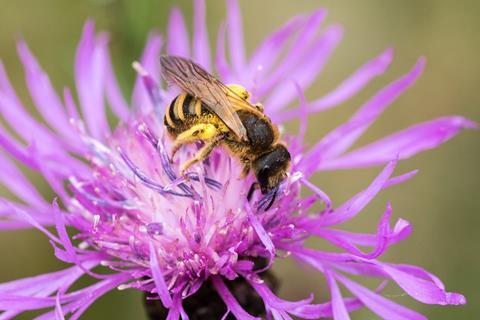New research reveals that certain soil microbes can help plants grow bigger flowers, therefore attracting more bees.

The findings, which are published in New Phytologist, suggest that studying roots’ relationships with microbes can help scientists predict floral trait variations and plant-pollinator interactions.
Enhanced flower size
The research focused on arbuscular mycorrhizal fungi (AMF), which form a symbiotic relationship with plant roots, providing the plant with nutrients and water in exchange for carbon.
AMF associations with plants’ roots enhanced flower size, resulting in more visitations by bees; however, especially high AMF root colonization caused smaller flowers, indicating potential trade-offs between plant growth and fungal associations.
READ MORE: Presence of bacteria in soil makes flowers more attractive to pollinators
READ MORE: Bees synthesize nutrients for the bacteria in their gut microbiome
“Our findings reveal that the hidden roles of AMF can emerge when we look beyond plant growth or a single AMF species,” said corresponding author Aidee Guzman, PhD, who was at the University of California Berkeley while conducting this research and is now an Assistant Professor at Stanford University. “Floral traits and bee activity varied between compositionally distinct AMF communities, emphasizing that not all AMF communities are the same.”







No comments yet